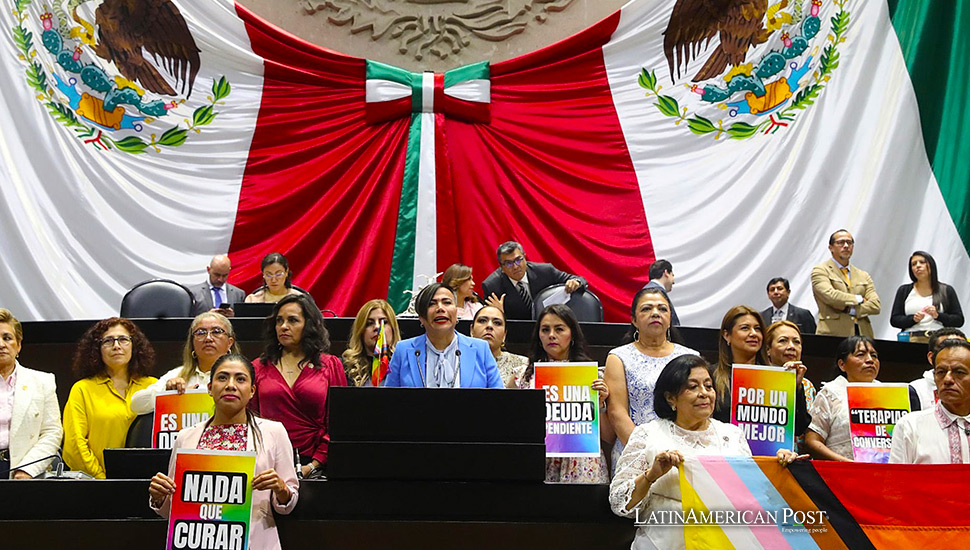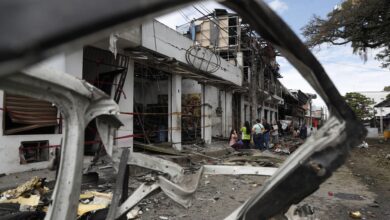Mexico Bans LGBTI+ Conversion Therapy

Mexico’s Chamber of Deputies has decisively voted to outlaw so-called sexual reorientation therapies for LGBTI+ individuals nationwide, marking a significant stride in safeguarding human rights and setting a legal precedent in Latin American progress toward equality.
A Historic Stand Against Conversion Therapy
In a historic session, the Mexican Chamber of Deputies passed a bill that categorically prohibits and imposes penalties on sexual reorientation therapies, often referred to as conversion therapy, for LGBTI+ individuals across the nation. With 267 votes in favor, 104 against, and 33 abstentions, the legislative body has taken a definitive stand against these controversial practices, amending the Federal Penal Code and adding Article 465 Bis to the General Health Law to enforce the ban.
The approval of the bill represents a significant advancement in Mexico’s commitment to human rights, particularly concerning the LGBTI+ community. The new law stipulates punitive measures, ranging from two to six years in prison and fines between 103,740 and 207,480 pesos (approximately 6,187 to 12,374 dollars), for those who conduct, offer, implement, coerce, or finance sexual reorientation therapies.
These practices, known collectively as Efforts to Correct Sexual Orientation and Gender Identity (Ecosig), have been widely criticized for their detrimental effects on individuals’ psychological and physical well-being. The Mexican legislation intensifies penalties for offenses committed against minors, older people, or individuals with disabilities, doubling the sanctions in such cases.
Penalties and Accountability
When a parent, guardian, or custodian of the victim is found guilty of facilitating these therapies, judicial discretion will determine the imposition of warnings or reprimands. Moreover, penalties will escalate when the perpetrator has a position of authority or trust over the victim, utilizes public office to commit the offense, or exerts any form of physical, psychological, or moral violence against the individual.
For professionals in a working relationship or public function, the law mandates termination and disqualification from holding any public office or similar roles commensurate with the duration of the sentence imposed. The initiation of an investigation into these offenses now requires only a formal complaint.
The General Health Law explicitly targets medical professionals who administer these therapies, intending to obstruct, restrict, eliminate, diminish, or suppress an individual’s sexual orientation, gender identity, or expression. Offenders face criminal sanctions under the Federal Penal Code and are subject to suspending their professional practice for one to three years.
These so-called therapies have included physical abuse, unlawful detention, economic exploitation, and even collective sexual assault under the guise of “curing” individuals of their sexual orientation or gender identity.
The legislative amendments have been forwarded to the Senate, which had previously approved the reforms in October 2022, for further scrutiny, discussion, and potential ratification before becoming official.
Regional and Global Shifts
This legislative action in Mexico reflects a broader regional shift in Latin America, where various countries are grappling with the legacy of discrimination against the LGBTI+ community and exploring legal frameworks to protect their rights. Since 1990, following extensive advocacy by civil and rights groups, homosexuality has been removed from the World Health Organization’s list of mental illnesses, signaling a gradual shift in societal and legal attitudes towards sexual orientation and gender identity.
Mexico’s move to ban conversion therapy aligns with global human rights trends and showcases the country’s evolving legal and social landscape. This step not only enhances the protection of LGBTI+ individuals in Mexico but also sets a precedent for other Latin American countries to follow suit in legislating against such harmful practices.
This legislation’s implications extend beyond Mexico’s borders, offering a beacon of progress for other nations in the region contending with similar issues. Countries like Argentina, Brazil, and Chile have also initiated discussions or implemented measures to protect the LGBTI+ community from discrimination and harmful practices like conversion therapy.
The ban not only reinforces Mexico’s commitment to human rights but also challenges the region to elevate its standards and protections for the LGBTI+ population. As Latin America navigates its complex socio-political landscape, Mexico’s legislative initiative catalyzes change, urging neighboring countries to reevaluate and reform their legal frameworks to ensure a more inclusive and equitable society.
Also read: Mexico’s Struggle for Justice in the Ayotzinapa Disappearances
The Mexican Chamber of Deputies’ decision to prohibit sexual reorientation therapies marks a significant milestone in the country’s human rights journey. It not only protects the dignity and well-being of the LGBTI+ community but also contributes to the broader narrative of Latin American countries progressively embracing equality and justice for all citizens, regardless of their sexual orientation or gender identity. This legislative achievement underscores the evolving consciousness in the region towards greater inclusivity and respect for individual rights, paving the way for a more tolerant and just society in Latin America.




